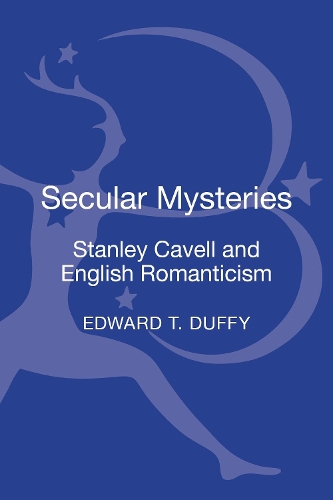
Secular Mysteries: Stanley Cavell and English Romanticism
(Hardback)
Publishing Details
Secular Mysteries: Stanley Cavell and English Romanticism
By (Author) Professor Edward T. Duffy
Bloomsbury Publishing PLC
Bloomsbury Academic USA
9th May 2013
United States
Classifications
Tertiary Education
Non Fiction
809.9145
Physical Properties
Hardback
304
Width 138mm, Height 216mm
479g
Description
Stanley Cavell and English Romanticism serves as both introduction to Cavell for Romanticists, and to the larger question of what philosophy means for the reading of literature, as well as to the importance and relevance of Romantic literature to Cavell's thought. Illustrated through close readings of Wordsworth and Shelley, and extended discussions of Emerson and Thoreau as well as Cavell, Duffy proposes a Romanticism of persisting cultural relevance and truly trans-Atlantic scope. The turn to romanticism of America's most distinguished "ordinary-language" philosopher is shown to be tied to the neo-Romantic claim that far from being merely an illustrator of the truths discovered by philosophy, poetry is its equal partner in the instituting of knowledge. This book will be vital reading for anyone interested in Romanticism, Stanley Cavell and the ever-deepening connections between literature and philosophy.
Reviews
Duffys understanding of Cavell is clearly profound, and he has an impressively detailed and broad knowledge of a swathe of Romantic poetry. * The Year's Work in English Studies *
By reading some central texts of Wordsworth and Shelley, along with those of Cavell, as efforts at the reconstruction or resettlement of the everyday, Edward Duffy recalls to us powerfully why both English Romantic poetry and Cavellian philosophy matter for us as at once records of losses and texts of recovery. Duffys care, subtlety, power, and insight in this recalling will be of enormous help to anyone trying to make sense of the strange powers of these variously wonderful works that show the philosophical and the literary in engagement with each other. -- Richard Eldridge, Charles and Harriett Cox McDowell Professor of Philosophy, Swarthmore College, USA, and co-editor of Stanley Cavell and Literary Studies
Edward Duffys approaches to Cavells work significantly extend and consolidate Cavells forays into Romanticism. Just as significant are his companion efforts to understand Cavells enterprises as in themselves Romantic projects. For Cavell, in Duffys reading, the skeptic seeks to confront and isolate the ground of knowledge in each individual knower. But skepticism yields a sense of the isolation in human knowledge that is self-imposed and inauthentic. Duffy demonstrates that the skeptic avoids the knowledge that 'we knowers' exist at a point 'where all stand single.' For Cavells Romanticism, our separateness is not the consequence of a failure of our knowledge but a condition of being an individual. The redemption of solitude from the corrosiveness of a skeptical self-consciousness makes possible an openness to companionship. Through this books painstaking attention to the details of a poem, we learn of the specific possibilities of poetry as embodying and acknowledging the human voice. Through his careful attention to the steps of Cavells reflections, Duffy brings us to the territory where philosophy and poetry meet. The effect is stunning. -- Timothy Gould, Professor of Philosophy, Metropolitan State College of Denver, USA, and author of Hearing Things: Voice and Method in the Writing of Stanley Cavell
Brilliantly appropriating Stanley Cavell's rich and complex approach to literary expression as an investigation into our common linguistic inheritance, Edward Duffy explores Wordsworth and Shelley's poetry as a way into the secular mysteries of the ordinary. Treating romanticism as a transatlantic phenomenoninstantiated on the American side in Emerson and ThoreauDuffy finds our efforts to locate routes of significance in the everyday in what he persuasively shows to be something of a lacuna in Cavells thought: a sustained reflection of English romanticism. The prose is throughout perceptive and crisp, and the readings are shrewd and original. -- Paul Grimstad, Assistant Professor of English, Yale University, USA
Author Bio
Edward T. Duffy is Associate Professor of English (Emeritus) at Marquette University, USA. He is the author of Rousseau in England: The Context for Shelley's Critique of the Enlightenment and The Constitution of Shelley's Poetry.
